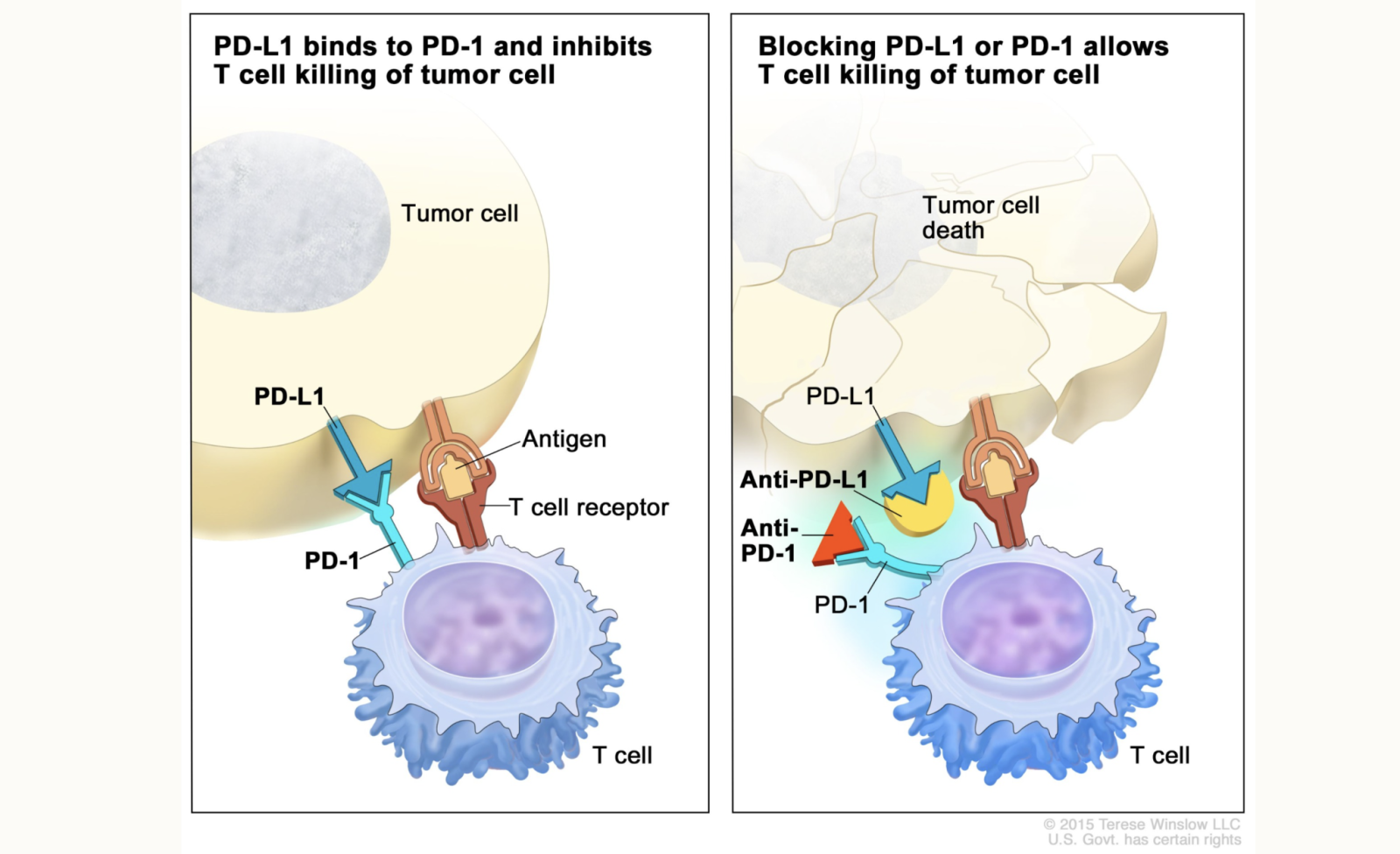In a recent study, a team of researchers from National Centre for Biological Sciences (TIFR), Bengaluru, and Centre for BioSystems Science and Engineering (IISc), Bengaluru, attempt to understand specific biomarkers and the immune environment. They aimed to predict how patients with solid tumours would respond to immune checkpoint blockade (ICB) therapies.

Tapping into the body’s immune system for cancer treatment has seen revolutionary advancements in the past decade. Immunotherapy, today, is characterised by a more pragmatic and holistic approach taken in the form of immune checkpoint blockade (ICB) therapy. Immune checkpoint inhibitors have thrown open what was a fast-closing door on solid tumour immunotherapy.
But what are immune checkpoint inhibitors (ICI)? Our immune system has in place elaborate measures to prevent itself from attacking the body’s own healthy cells. Immune checkpoints are proteins present on the surface of immune cells, such as the T cells, that are capable of recognising and binding to specific proteins on the surface of other cells in the body. Immune checkpoint proteins signal T cells to turn their immune responses “off” or “on”. And cancer cells are able to use these very checkpoints to their advantage and stave off imminent attacks by the body’s immune system. Developments in the field of immunology have given rise to immunotherapy drugs, also known as monoclonal antibodies, which run interference and stop the immune checkpoint proteins from switching the T cells off. These drugs are termed ‘immune checkpoint inhibitors’.
Today, immune checkpoint inhibitors are widely used to target different immune checkpoint proteins like CTLA‑4, PD‑1, and PD-L1. The use of immune checkpoint blockade (ICB) therapy, utilising these inhibitors, made a significant impact in cancer immunotherapy and was recognised with the 2018 Nobel Prize in Medicine. However, despite its remarkable progress, ICB therapy has several limitations.
One of the biggest challenges faced by oncologists is to predict the efficacy of ICB therapy and patients’ response. To address this, biomarkers or predictors have been identified to help determine the course of prognosis and gauge patient response to ICB therapy. However, the effectiveness of these predictive biomarkers is still largely ambiguous, especially for various types of solid tumours.
“Immune checkpoint blockade (ICB) therapies, which activate the body’s own immune cells to fight cancer, are emerging as effective treatments for several solid tumours; however, the response rate is still variable. One possible reason for this variability is the lack of immunogenic antigen presentation in tumour cells,” explains Sabarinathan Radhakrishnan, Scientist (Reader‑F), National Centre for Biological Sciences.
In this study, researchers from the National Centre for Biological Sciences (TIFR) and Centre for BioSystems Science and Engineering (IISc) investigate one such biomarker related to immunoproteasome (IP) genes. They analysed the expression of IP genes in tumours and examined their correlation with patient survival and response to ICB therapies across different types of cancer.
“We explored the expression levels of IP genes, whose induction in tumour cells can enhance antigen presentation and immunogenicity, in multiple solid tumours and correlated it with the effectiveness of ICB therapies. Interestingly, we find that patients with high expression of IP genes in their tumour cells show a more positive response to ICB therapies in skin-melanoma, breast, bladder, thymic and non-small-cell lung cancers. Based on this, we propose that IP gene expression can serve as a biomarker to predict the response to ICB therapies,” says Radhakrishnan.
“This study provides valuable insights for enhancing the effectiveness of ICB therapy, which has revolutionised the outlook for oncology and led to significant improvement in overall patient survival,” says Rohan J. Khadilkar, Principal Investigator, Tata Memorial Centre – ACTREC, Mumbai.
Researchers identified that solid tumours with high IP expression have more immune cells attacking the tumour and show increased levels of key inflammatory molecules like IFN‑γ and TNF‑α. They believe these findings “can help identify which tumour types can benefit from ICB therapies or a combination of proteasome inhibitors (and targeted therapies), resulting in better treatment outcomes.” However, further studies involving a larger number of patients, and with different cancer types are essential to validate these findings.
Khadilkar adds, “This study opens up an exciting new avenue as these immune hallmarks can serve as better predictors of overall patient survival prognosis and their response to ICB therapies.”